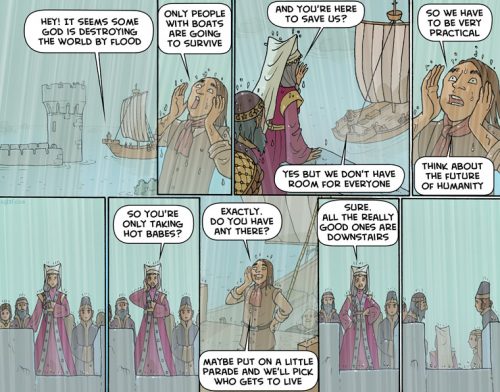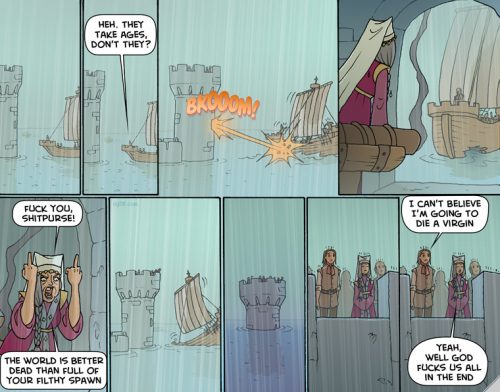Ariel as an eldritch abomination:
Well, hello Eldritch Ariel. You're looking…abominable. pic.twitter.com/jglZXB0Jz7
— Jared Pechacek (@vandroidhelsing) July 8, 2017
Disney does remakes, I know. I might be slightly worried that they’ll do this one as a live-action remake, ushering in the Age of the Old Ones.







